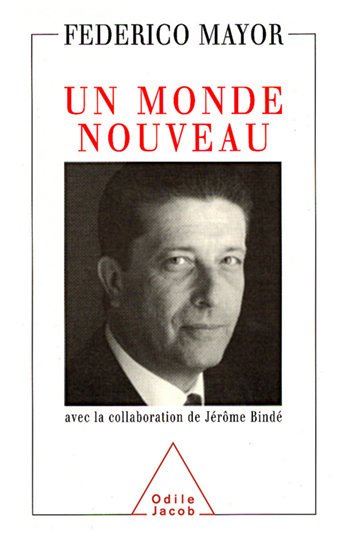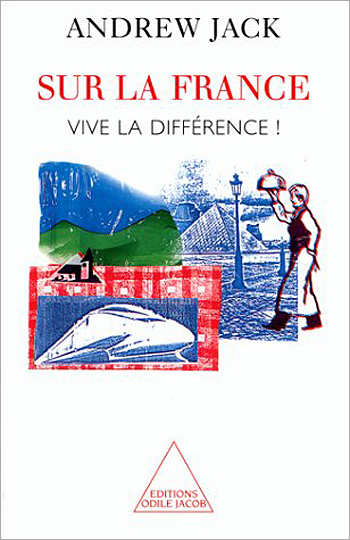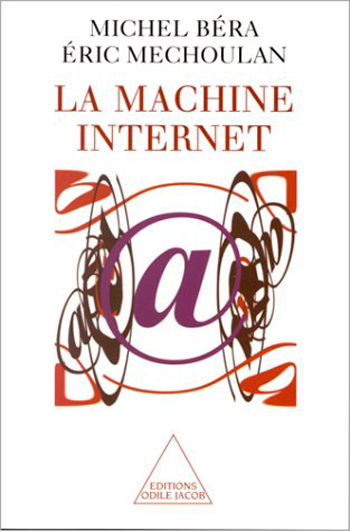Testimonials, News, Investigations All books

Jean Gallot
The Beautiful Job of Being a Lawyer
Jean Gallot was born at the beginning of the century and studied in Paris. He rapidly made a reputation for himself as one of the most brilliant lawyers of his generation. In this book, he reflects upon the copious experiences of a lifetime, the cases he so ardently defended and his meetings with famous people of the time. This is a precious record of an era, as well as of a profession that is currently undergoing major changes in France.

Edwige Rude-Antoine
Adopting a child from abroad
Today two-thirds of all adoptions concern a child from another country. What is the motivation of the prospective parents ? How have different governments dealt with the rising demand for adoptions ? What legal procedures have they implemented, and what effect have they had ? How does an adoption case actually unfold ? The author goes beyond an examination of the legal and procedural differences that can be found around the world, she explores the emotions of the adopted children themselves. This book will be a useful tool for both childcare professionals and adoptive parents. Edwige Rude-Antoine, a lawyer and sociologist, heads a research team at the Centre National de la Recherche Scientifique.

Philippe Delmas
Of the Next War With Germany
France and Germany are geographically close and yet so different. In this study of the two countries, the author examines French attitudes toward Germany, and wonders whether France will finally be able to rid itself of its traditional fears of its neighbour. Trapped by their anxieties and suspicions, torn apart by internal doubts, will France and Germany cease working hand-in-hand as they did during the Cold War and confront each other as opponents once again? Or will they seize the opportunity offered by European unification and finally learn to understand one another? This book provides the reader with athorough examination of the dilemmas facing both France and Germany.
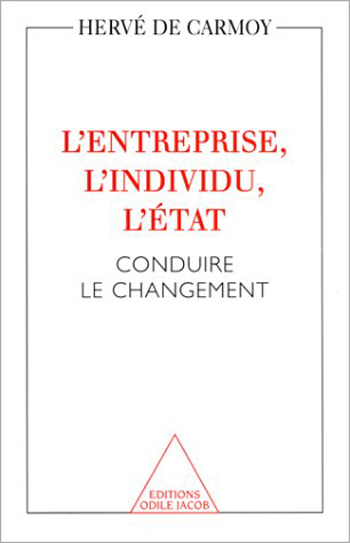
Hervé de Carmoy
Entreprise, Individual and State Leading to Change
The author believes that France is suffering from numerous ills, including inertia, demagogy, unemployment, corruption, corporotism, elitism, and a general withdrawal from the outside world. He also thinks that much more than clear-headedness and a desire for change are required if a cure is to be found. What is the best way of making the necessary changes? How have others gone about implementing those changes? He believes the business world provides an excellent model for learning how to deal with an ever-changing environment. Hervé de Carmoy was formerly general director of the Midland Bank in London.

George Bush, Brent Scowcroft
A World Transformed
It was one of the pivotal times of the twentieth century - during George Bushs presidency an extraordinary series of international events took place that materially changed the face of the world. Now, former President Bush and his national secretary advisor, Brent Scowcroft, tell the story of those tumultuous years. Here are behind-the-scenes accounts of critical meetings in the White House and of summit conferences in Europe and the United States, interspersed with excerpts from Mr. Bushs diary. We are given fresh intriguing views of world leaders such as Mikhail Gorbachev, Boris Yeltsin, Margaret Thatcher, Helmut Kohl, and François Mitterrand--and witness the importance of personal relationships in diplomacy. There is the dramatic description of how President Bush put together the alliance against Saddam Hussein in the Gulf War. There are the intensive diplomatic exchanges with Beijing following the events of Tiananmen Square, and the intricate negotiations leading up to the German reunification. And there is the sometimes poignant sometimes grim portrayal of Gorbachevs final years in power. A World Transformed is not simply a record of accomplishment; Bush and Scowcroft candidly recount how the major players sometimes disagreed over issues, and analyze what mistakes were made. This is a landmark book on the conduct of American foreign policy-- and how that policy is crucial to the peace of the world. It is a fascinating inside look at great events that deepens our understanding of todays global issues. George Bush was President of the United States from 1989 to 1993. Brent Scowcroft was National Security Advisor under Presidents Ford and Bush.
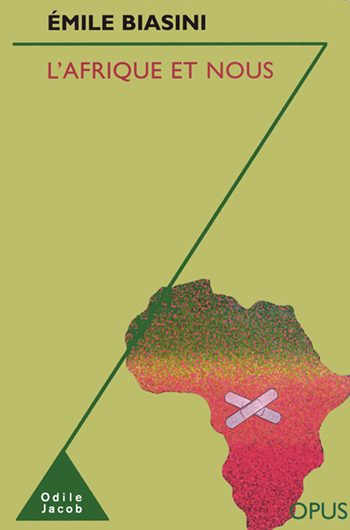
Émile Biasini
Africa and Us
Economist Charles Gide once described colonization as "a force of nature." Biasini believes that to imagine that our current phase of decolonization actually is an end to colonialism is just another manifestation of our society's megalomania. Africa today is going through a phase of change. It must stay faithful to its roots, digesting all the various cultures which have influenced it, while facing a new colonial menace. Its own elites, once fled abroad, have returned to Africa and are quickly becoming the colonists of their own countries. And such colonial ambitions, history teaches us, must inevitably lead to imperialism. Emile Biasini was a civil servant in colonial Africa. Under De Gaulle, he helped found the Ministry of Culture.
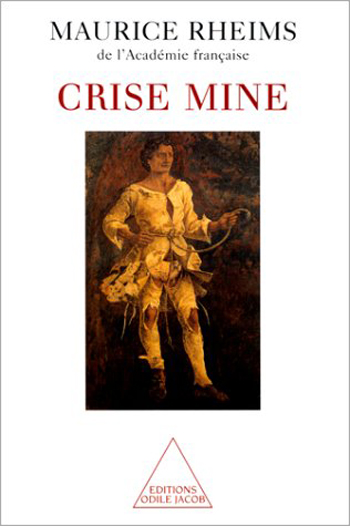
Maurice Rheims
crise mine
A well-known writer, art collector, academic, and sometime auctioneer reflects on life in our times and on the art of living well. In an age when it has become fashionable to lament a kind of society-wide depression, Rheims examines other periods of crisis and general malaise throughout history, and ends with a resounding affirmation of the power that curiosity, beauty, and art will continue to hold. Maurice Rheims is president of the Fondation de France's cultural development fund, and a member of the Académie française. He is the author of many essays, novels, and books on art.
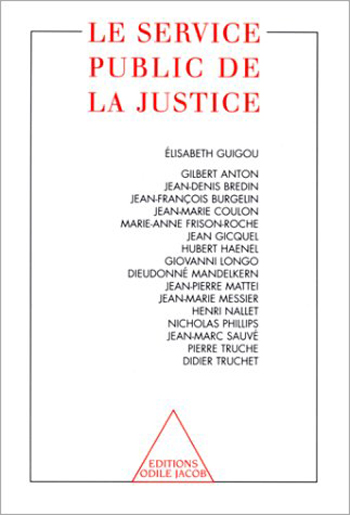
Collectif
The Judicial System as a Public Service
Should the judicial system be reformed ? This question is at the centre of lively debates. It is to institutions such as the chancellery, courts of law and magistrates, that it falls to forge the judicial system, the deliverer of order, equilibrium and social cohesion. However, these institutions seem today to be weak, both in terms of organisation, and in methods of recruitment. It is thus necessary that changes are made. This is especially so as the duty of the judicial system is to operate in such a way that all individuals remain citizens, by delivering them judgements in a reasonable timescale which are certain to be respected. In this respect, it is a public service. The objective of this book is to assess the forms and the effects of a decisive reform in order to benefit our society.
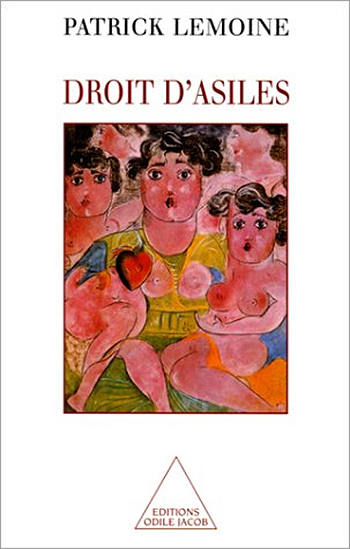
Patrick Lemoine
Right of Sanctuaries
This book is a detailed reconstruction of daily life at the Asile du Vinatier, a psychiatric institution near Lyon, from 1937 to 1945, a period marked by the earliest institutional attempts to treat mental illness. It was also the time when the blindness of administrative rules, the meanness of politicians, and the indifference of society at large resulted in a collective drama: the gradual extermination of mental patients. Patrick Lemoine is a psychiatrist and department head at the Hôpital du Vinatier in Lyon.

